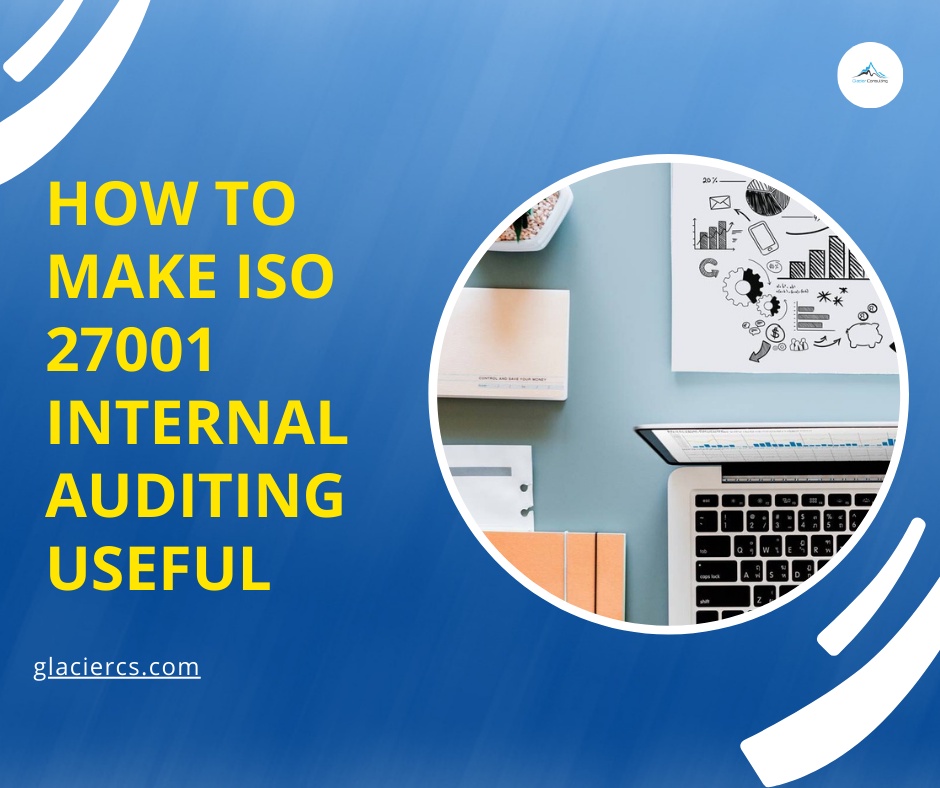In the dynamic landscape of cybersecurity, safeguarding sensitive information is paramount for organizations. One of the most important steps in this quest is to achieve and maintain compliance with ISO 27001, an internationally recognized standard for information security management. However, the competence of internal auditors is a critical component of ISO 27001 implementation success. In this piece, we'll look at ways to make ISO 27001 internal audit more useful while still maintaining a strong and efficient information security management system.
Understanding the Role of ISO 27001 Internal Auditors
It is essential to understand the function of internal auditors within the ISO 27001 framework before diving into optimization measures. As the organization's inspectors, internal auditors assess the information security management system's (ISMS) efficacy and make sure ISO 27001 regulations are being followed. Their observations offer insightful commentary that assists organizations in identifying weaknesses, putting remedial measures in place, and continually enhancing their security posture.
1.Invest in Comprehensive Training Programs
An effective internal auditor's expertise and comprehension of ISO 27001 standards form its basis. Companies should spend money on extensive training initiatives to provide internal auditors with the know-how and abilities they need. Along with covering the technical components of ISO 27001, these seminars should place a strong emphasis on risk assessment, practical application, and effective communication.
2.Promote a Risk-Based Approach
Urge internal auditors to approach assessments using a risk-based methodology. In order to do this, audit focus must be prioritized on areas that have the most potential to affect information security. Internal auditors can offer focused insights and suggestions by matching audits to the risk profile of the company, which strengthens the ISMS.
3.Foster Effective Communication Skills
Technical proficiency is important, but so is the ability to clearly express findings. Internal auditors need to be skilled in explaining complicated security issues to a range of stakeholders, including executives and front-line staff. Prioritizing proficient communication abilities guarantees comprehension of audit findings, promoting smooth cooperation in carrying out remedial measures.
4.Encourage Continuous Learning and Adaptability
The environment of cybersecurity is always changing as new threats appear on a daily basis. Information security advances must be kept up to date for internal auditors. Promote an environment where learning never stops, inspiring auditors to take part in webinars, go to pertinent conferences, and gain industry certifications. This flexibility guarantees auditors can deal with new issues and technology in an efficient manner.
5.Collaborate Across Departments
Internal auditors should not work individually. A thorough audit requires cooperation across several departments, such as IT, legal, and human resources. By using a cross-functional approach, the auditors are better able to comprehend the organization's overall security posture and are able to work together to resolve concerns that are found.
6.Utilize Technology to Streamline Auditing Processes
Utilize tech-based solutions to make auditing procedures more efficient. By lowering the amount of human labor required for data gathering and processing, automation systems free up auditors to concentrate on important evaluations. Technology integration improves productivity and yields a more precise and comprehensive assessment of the ISO 27001 Internal Audit.
7.Establish Key Performance Indicators (KPIs) for Auditors
Establish quantifiable, explicit KPIs for internal auditors to use in evaluating their work. The quantity of audits carried out, the location of high-risk regions, and the success of corrective action implementation are a few examples of these KPIs. Conducting routine reviews of KPIs facilitates ongoing enhancement and offers valuable insights into the effectiveness of the auditing procedure.
Conclusion
In conclusion, the success of an organization's information security management system greatly depends on the efficacy of its internal auditors who adhere to ISO 27001 Internal Audit. Organizations can optimize the benefits of internal audits by allocating resources towards extensive training, advocating for a risk-based strategy, cultivating efficient communication, stimulating ongoing education, advancing teamwork, employing technology, and setting unambiguous key performance indicators. In addition to helping to maintain ISO 27001 compliance, empowered internal auditors also help organizations maintain a flexible and resilient cybersecurity posture in the face of changing threats.


No comments yet